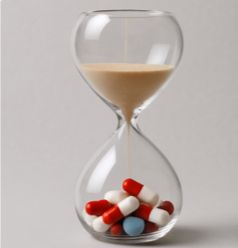
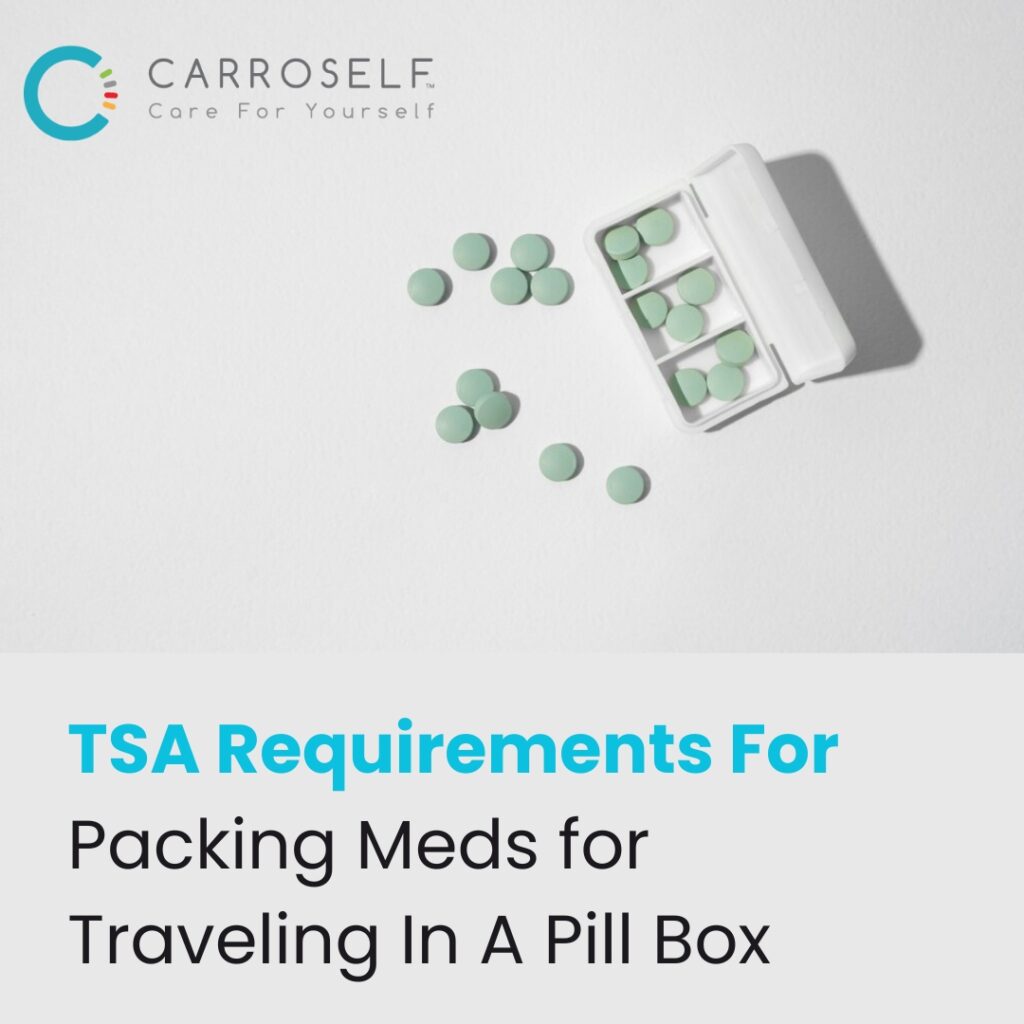
You had packed your bags and triple-checked the travel itinerary exhaustively, and now it was time to organize your daily pharmaceuticals. While packing for your journey, countless thoughts rush through your mind regarding transporting the necessary medicines past the airport security gate. If one relies on constant cure-alls, supplements, or other necessary medications, confirming they adhere to TSA standards is essential to maintaining equanimity during air travel.
Whether organized tidily in the best travel pill box or stored randomly, understanding rules can spare one from needless trouble at checkpoints where vigilance is high. Let us explore all that is required for a smooth flight.
Yes, the TSA (Transportation Security Administration)affirms that passengers can travel systematically with prescription and non-prescription medicines. However, some fundamental rules should be observed to bypass security delays. Though the TSA does not mandate specific packaging, some destinations can mandate original containers. It’s preferential to review each location’s statutes before departing.
Let’s understand some of the rules and regulations for taking your medicines on a flight:
1. You Can Place Pills in Carry-On or Checked Luggage
TSA permits pills to be carried on or checked luggage. Medications must remain readily available in a carry-on if checked baggage is lost or delayed.
2. Drugs Don’t Require Original Bottles
You can neatly arrange pills in a Travel Pill Box. Prescription bottles are not required, though they may be helpful if you prefer to use them
3. Announce Liquid Medications Over 3.4 Ounces
If you have liquid medication (like cough syrup or insulin), they are excluded from the TSA’s 3.4-ounce liquid restriction.
However, you must tell them at screening and tell ticketing agents you are carrying liquid medicine.
4. Medications Won’t be Compelled From Your Luggage During Screening
The TSA doesn’t necessitate travelers to go to distant pill containers or medicine from their baggage amid security screening.
However, if the prescription actuates an alert or necessitates further assessment, you can request that it be evacuated for additional investigation.
5. Carry Proof of Drug Prescriptions
Although the TSA doesn’t require prescriptions, conveying a note from your specialist or a duplicate of your solution can be useful if you are addressed about your solution.
This is particularly vital for worldwide travel, as certain nations have strict medication laws.
Here are some of the best ways to take your medicines with you on a journey via air:
Taking pills into a Smart Pill Box can simplify traveling with drugs. These innovative pill organizers have timers, alerts, and spaces to keep your measurements in check.
Pick the Best Pill Box for Travel
When choosing the Best Travel Pill Box, keep the following in mind:
It is important to keep an updated checklist of all prescription and over-the-counter drugs one takes. The list should also include dosages and prescribing physicians. This process can help medical professionals provide the best care in an emergency while traveling away from home.
For those traveling further abroad or whose conditions require numerous complex treatments, keep a secondary list of alternative contact details for medical facilities in the destination country.
For longer trips of more than 30 days, especially to remote areas with uncertain medical infrastructure, replicating essential maintenance medications in a second carry-on ensures continued access and management of one’s conditions, even if primary luggage is delayed or lost.
Nevertheless, prescriptions susceptible to heat and moisture may demand further duplicate replication or transport in waterproof containers with cold packs within personal item bags to survive potential delays unharmed.
Certain pills can degrade their effectiveness more quickly when exposed to heat and moisture. Therefore, they should be kept in a cooling and humidity-sensitive atmosphere. You may keep them in their original, sealed packaging.
For those relocating to locations with climates that are harmful to certain medications, it may be careful to inquire with physicians beforehand.
While traveling internationally, look up the laws regarding medicine for your foreign destination. Many nations have strict regulations on controlled medications, even legal ones in America. Always bring:
The Best travel pill box holds medications safely in place. Choose one that’s light and easy to open. For your next trip, you may want to check out the Carroself smart pill organizer.
2. Have an Emergency Supply
Unforeseen delays or misplaced luggage can occur. Pack extra doses in an alternate bag for precaution.
3 Research Airline and Country-Specific Regulations
Certain airlines and foreign destinations have more stringent medication regulations. Always review the rules before departure.
4. Use an App to Monitor Your Medications
Use reminders on your smartphone so you never forget to take a dose while away from home.
Organizing your medications in a smart pill box can ensure hassle-free travel while ensuring compliance with TSA regulations. Always prepare, have all the required documentation, and select the Best pill box for travel. By doing all this, you can have a great time on your trip without any medication-related issues at airport security.
For more travel-friendly medication planners, see the top pill organizer at Carroself.
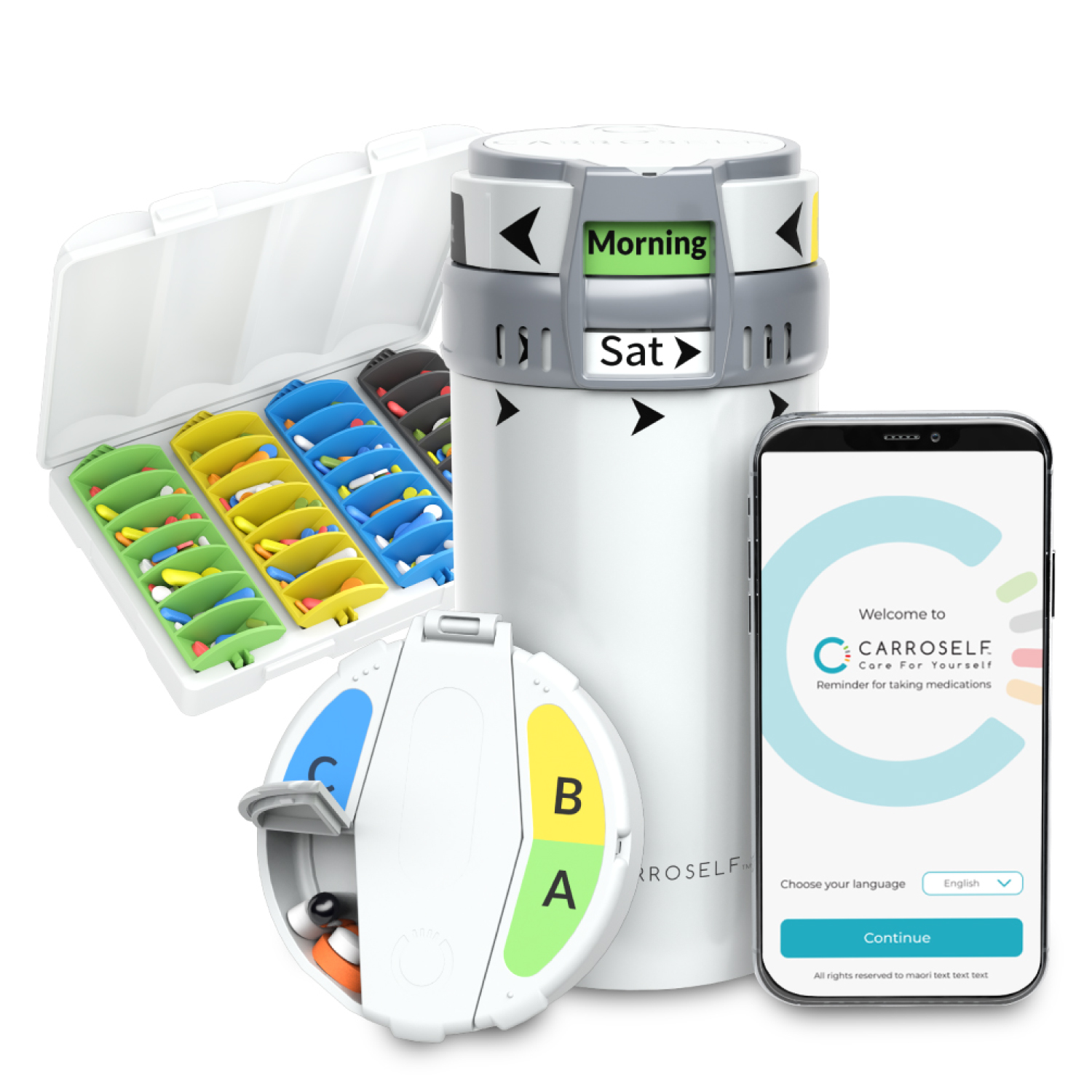

The Hidden Price of Forgetting Your Medications: Why Missing a Dose Can Cost More Than You Think

Best Ways to Remember Your Medication Every Day and Avoid Health Risks

Taking 4 Pills a Day? Here’s the Best Schedule to Follow

How to Keep Track of Your Medicines and Time if You Have Dementia

10 Essential Medication Management Tips for Seniors and Caregivers
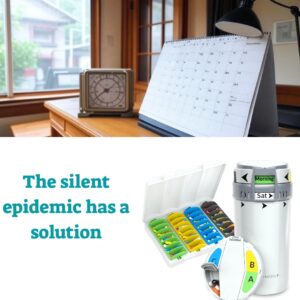
The Silent Epidemic of Medication Non-Adherence: A Growing Concern with Practical Solutions



The Hidden Price of Forgetting Your Medications: Why Missing a Dose Can Cost More Than You Think

Best Ways to Remember Your Medication Every Day and Avoid Health Risks

Taking 4 Pills a Day? Here’s the Best Schedule to Follow

How to Keep Track of Your Medicines and Time if You Have Dementia
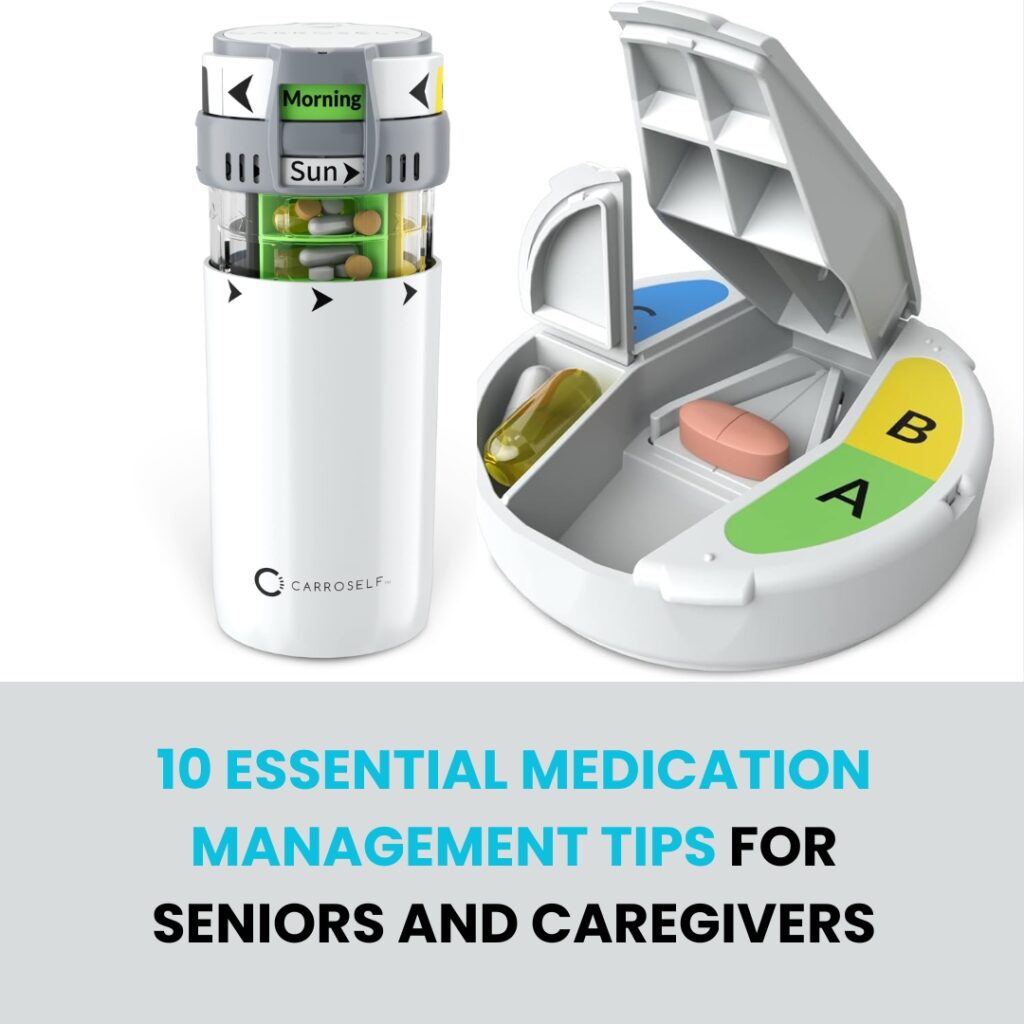
10 Essential Medication Management Tips for Seniors and Caregivers